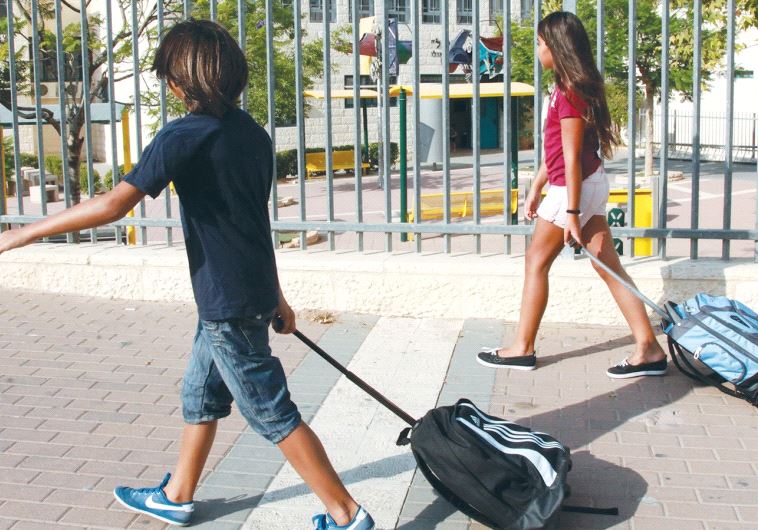NGO report paints grim picture of state of children in Israel
"There are too many hardships and too few responses in education, welfare, health, law enforcement and the protection of children."
 Children walking to school(photo credit: MARC ISRAEL SELLEM/THE JERUSALEM POST)
Children walking to school(photo credit: MARC ISRAEL SELLEM/THE JERUSALEM POST)